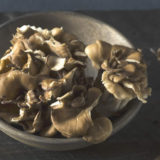

There is a belief circulating out there that frozen fruits and vegetables are more nutritious than fresh. For some people I know, this concept is sacrilege. They worship at the Alter of Mother Nature and consider eating all packaged foods to be an act of self-abuse. Others depend primarily on the frozen food aisle for their “food-borne” vitamins, citing convenience, lower price and the belief that it doesn’t really matter as their reasons.
It turns out that there are pros and cons to each choice, a couple of which had not occurred to me prior to studying the issue. Let’s examine the good and bad of fresh versus frozen.
Fresh Produce
Pros
- When locally or home grown, fresh, ripe produce is as nutrient-dense as it can be.
- Generally better taste and texture than any other form, dried, canned or frozen.
Cons
- Lose moisture and become susceptible to spoilage within days.
- Significant loss of nutrient value begins to occur after 48 hours.
- Storage and travel to market can cause nutrient loss.
- When not locally grown, picked before peak nutrient density has been reached.
- More expensive.
Frozen Produce
Pros
- Usually harvested at peak ripeness, which allows highest nutrient density to be achieved.
- Flash frozen, which allows retention of most nutrient value.
- Very little nutrient value is lost because fruits are not blanched before freezing.
- Generally less expensive than fresh.
- Less waste due to spoilage.
Cons
- Blanching to preserve color of vegetables and kill harmful bacteria denatures water soluble vitamins like C and B.
- Some antioxidants may be reduced in strength due to freezing
- May contain additives such as: sugar (fruits) or sodium, fat and preservatives (vegetables)
The Verdict
Most Americans eat only one-third of the fruits and vegetables recommended for daily consumption. In part, this is due to the very busy, time-constrained lives that we live in this country. If pulling some spinach out of the freezer gets more green leafy phyto-nutrients into you, because you can’t take the time to triple wash the fresh stuff before preparing, then by all means do so. In other words, any difference in nutrient value is negligible when weighed against the alternative of not eating fruits and veggies at all.
But, remember, fresh or frozen, how you cook it makes all the difference in nutritional value. Avoid boiling your vegetables for an extended period of time. Either steam or blanch and sauté your veggies for best taste and nutrition.
A Final Thought
I personally try to eat fresh, locally grown fruits and vegetables when they are in season. That means I shop at the local farmers market. I think this is best for taste and nutrition. Out of season, I use frozen produce very frequently and year round I use frozen berries in my protein shakes. It works well for me to use a mixture of fresh and frozen.




